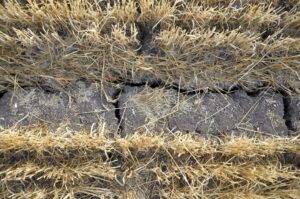Back to: Pre Vocational Studies Primary 5
Welcome to class!
Hello, my bright student! It’s great to have you back for another learning adventure. Today, we’re going to talk about “weeds.” These are plants that grow where they are not wanted, especially in farms and gardens. They can cause problems for farmers and gardeners. Let’s begin!
Weeds

Imagine you have a beautiful garden where you’re growing tomatoes and peppers. But then, some other plants start growing in between your tomatoes and peppers, taking up space and blocking sunlight. These unwanted plants are called weeds.
Here are some key things about weeds:

- Unwanted Plants: Weeds are simply plants that are growing where they are not wanted. They can be any type of plant, from grasses to flowering plants.
- Competition: Weeds compete with crops for essential resources like water, nutrients, sunlight, and space. This can reduce the yield and quality of the crops. It’s like having too many people trying to share a small piece of cake – there won’t be enough for everyone.
- Spread Easily: Weeds often produce many seeds that can spread easily by wind, water, or animals. This makes it difficult to control them.
- Different Types: There are many different types of weeds. Some common examples include grasses like spear grass and broadleaf weeds like pigweed.
Here are some problems that weeds can cause:
- Reduced Crop Yields: Weeds compete with crops for resources, which can reduce the amount of crops that farmers can harvest.
- Lower Crop Quality: Weeds can also affect the quality of crops, making them smaller or less nutritious.
- Increased Costs: Farmers have to spend time and money on controlling weeds, which can increase the cost of producing food.
- Harboring Pests and Diseases: Some weeds can harbor pests and diseases that can also attack crops.
Here are some ways that farmers and gardeners control weeds:
- Manual Weeding: This involves removing weeds by hand, using tools like hoes or by pulling them out of the ground. This is often done in small gardens or for delicate crops.
- Mechanical Weeding: This involves using machines like cultivators or tractors to remove weeds. This is often done on larger farms.
- Chemical Weeding: This involves using herbicides (chemicals that kill weeds) to control weeds. This method needs to be used carefully to avoid harming the crops or the environment.
- Mulching: This involves covering the soil surface with organic materials like straw or wood chips. This can help to suppress weed growth.
- Crop Rotation: This involves planting different crops in the same field each year. This can help to disrupt weed cycles and reduce weed problems.
Let’s use an example. Imagine a farmer growing maize. If weeds are allowed to grow in the maize field, they will compete with the maize plants for water and nutrients. This can result in smaller maize cobs and a lower yield. The farmer might use a hoe to remove the weeds by hand or use a tractor with a cultivator to remove the weeds between the rows of maize.
So, to summarize, weeds are unwanted plants that compete with crops for resources. They can cause many problems for farmers and gardeners. There are different methods for controlling weeds, including manual weeding, mechanical weeding, chemical weeding, mulching, and crop rotation.
Evaluation
- Can you explain why weeds are a problem for farmers?
- Can you name two ways that farmers control weeds?
Excellent! You’re doing a fantastic job! I’m so proud of your learning.
We have come to the end of today’s class.
In the next class, we shall be talking about the Family value and cycle.
In case you require further assistance or have any questions, feel free to ask in the comment section below, and trust us to respond as soon as possible. See you in the next class!
